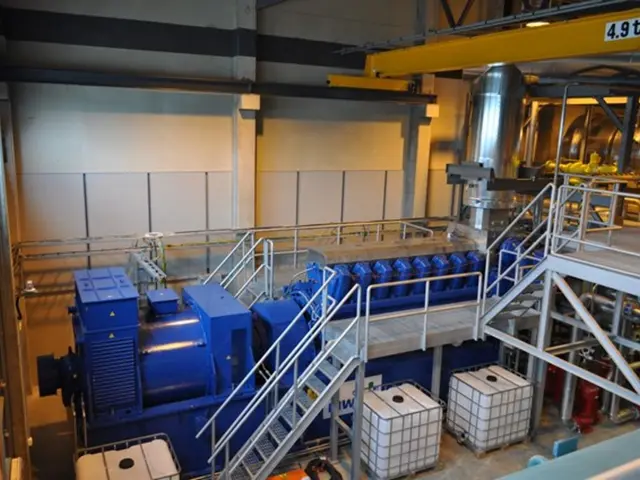Government endorses financial assistance plan for businesses
The federal German government has officially approved an massive tax relief package titled the "Investment Booster". This bill aims to alleviate the financial strain on businesses, thereby propelling the economy back onto a growth trajectory. Two financial gurus have welcomed this move, but there could be resistance from the federal states.
The Cash Injection: A Closer Look 🤑
Under the auspices of the "Investment Booster", businesses can anticipate relief to the tune of approximately €46 billion between 2025 and 2029. In order to accommodate this substantial financial adjustment, the federal government, states, and municipalities are expected to recover around the same amount in reduced tax revenues. This potential fiscal shift might stir up disagreements in the Bundesrat.
The package unveils the following significant measures:
- Super-depreciation of 30% each year from 2025 through 2027 on investments.
- A progressive decrease in the corporate tax rate by one percentage point annually, starting from 2028 and continuing for five years.
- E-Mobility Booster expansion which raises the vehicle price cap from €75,000 to €100,000 and offers a 75% depreciation option in the initial purchase year. Additionally, funding for research support is enhanced.
The proposed bill's initial discussion in parliament will take place on Thursday. If the discussions progress swiftly, all necessary parliamentary decisions could be made before the summer break.
🚀 A Promising First Step 🚀
Tobias Hentze, a tax expert from the Cologne Institute of the German Economy, views this move as a promising signal that the government is staying true to its promises. He notes that gradually declining depreciation rates motivate businesses to invest sooner and more substantially. However, Hentze warns that this stimulus's positive impact might be only temporary.
Currently, the corporate profits tax burden in Germany is about six percentage points higher than the average among OECD industrial countries and nine points higher than the EU average. Hentze suggests that the reduce in corporate tax rate planned for 2028 should be accelerated to ensure competitiveness.
Simon Pex, an investment professional from Carlyle, perceives a shift in sentiment. Germany and Europe are once again capturing the attention of investors, according to Pex. The new German government has the potential to spur economic growth once more. He predicts that Germany could prove to be an appealing investment destination during the next decade.
The Bundesrat's Reaction: A Wildcard ❓
While the states can help finance revenue losses through adjustments to the debt brake, the situation for municipalities might be more challenging. They face having to shoulder around €11 billion in financial relief, from 2025 to 2028. However, municipalities contribute only 15% of tax revenues, which could result in an imbalanced burden and push many municipalities further into financial instability.
- The federal government's "Investment Booster" policy, designed to stimulate German businesses financially, may encounter resistance from the federal states, given the anticipated recovery of approximately €46 billion in reduced tax revenues from 2025 to 2029.
- The proposed policy includes a lower corporate tax rate, super-depreciation, and an E-Mobility Booster, all aspects that might impact employment and business policies, as well as general-news discussions within the community and politics.







